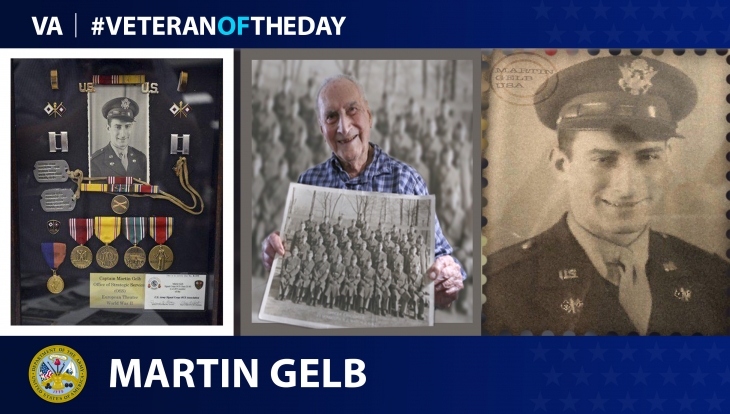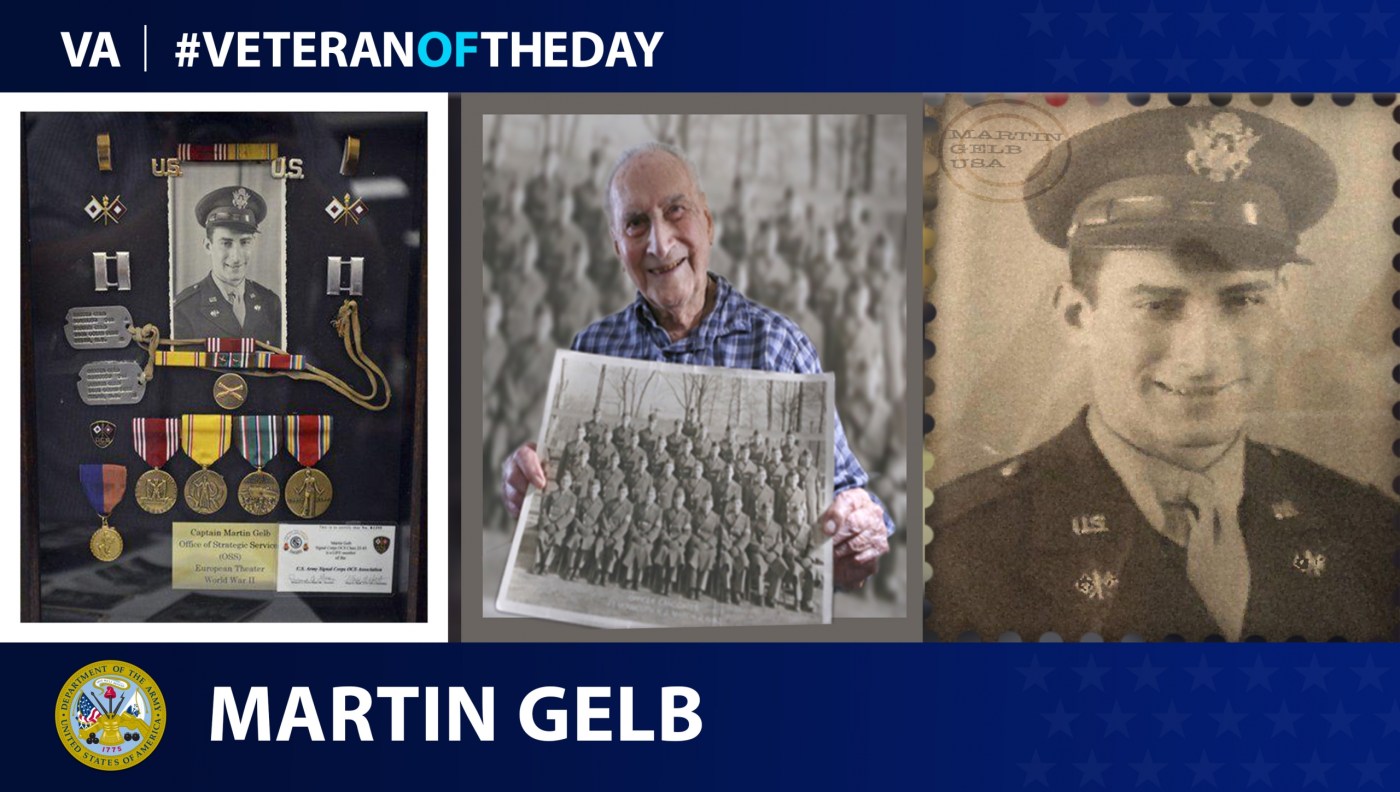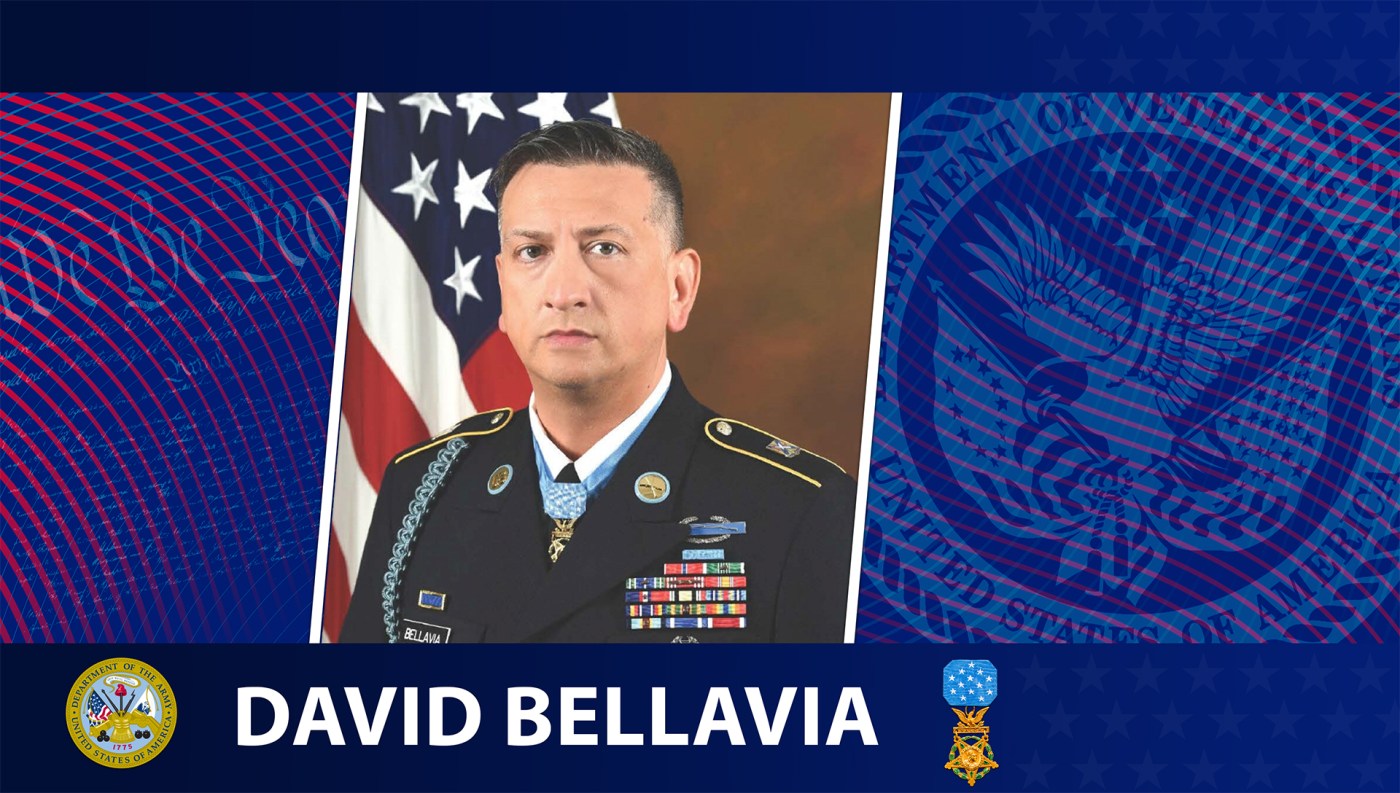
On the CIA’s birthday, today’s #VeteranOfTheDay is Army Veteran Martin Gelb, who worked in the Office of Strategic Services during WWII.
Hailing from Brooklyn, New York, Martin Gelb enlisted the Army as a tool inspector on May 26, 1943, after attending the Eastern Signal Corps School in Fort Monmouth, New Jersey. He became part of the Office of Strategic Services (OSS), the precursor to the CIA, and worked in highly classified operations and communications. Gelb worked closely with William “Wild Bill” Donovan, the head of OSS from 1942 to 1945. “To him, rank was not important. He was down to earth. He spoke about our job helping the resistance,” Gelb said in a 2019 Boston Herald article. “I was given my orders every time at OSS headquarters. They never risked assigning me by radio.”
As an expert radio operator who knew Morse code and International Morse code, Gelb deployed to England to a radio group that kept in touch with resistance fighters. With most of Europe occupied by the Nazis, resistance groups were key in relaying information on Army operations and logistics to the Allies in England. While working with the radio group, Gelb also taught new recruits how to use American spy equipment.
During D-Day, Gelb landed with the Allied forces to support communications on the battlefield. He also worked in espionage, blowing up railways and blocking roadways with tree trunks to prevent German advances or retaliations. Gelb additionally served as a field officer, participating in missions to capture important enemy figures while continuing to relay secret messages to his superiors.
Gelb was in the Battle of the Bulge during the winter of 1944 and the liberation of Buchenwald concentration camp in April 1945. Following Germany’s surrender in May 1945, Gelb helped transport war criminals for trial in Nuremberg. He also assisted with the setup of the OSS office in Wiesbaden. After returning to the U.S, Gelb honorably discharged as a captain in January 1946.
After his service, Gelb worked in a phone company and wrote computer programs. Because OSS work was classified, Gelb could not discuss his wartime service with his friends and family. In 2008, OSS records were declassified, and Gelb gradually began to share his wartime experiences. On June 25, 2018, he received a Congressional Gold Medal for his work with the OSS. Gelb is one of less than 100 members of the OSS still living today.
“I love the country we have, and I don’t care what anybody says, this is one great country,” Gelb stated at his medal presentation ceremony. “It called upon me and guys like me to perform a task, and we did the best we could.”
Thank you for your service!
Nominate a Veteran for #VeteranOfTheDay
Do you want to light up the face of a special Veteran? Have you been wondering how to tell your Veteran they are special to you? VA’s #VeteranOfTheDay social media feature is an opportunity to highlight your Veteran and his/her service.
It’s easy to nominate a Veteran. Visit our blog post about nominating to learn how to create the best submission.
Veterans History Project
This #VeteranOfTheDay profile was created with interviews submitted to the Veterans History Project. The project collects, preserves, and makes accessible the personal accounts of American war Veterans so that future generations may hear directly from Veterans and better understand the realities of war. Find out more at http://www.loc.gov/vets/.
Contributors
Writer: Sarah Concepcion
Editor: Katherine Berman, Julia Pack
Fact checker: Carl Wessln
Graphic artist: Philip Levine
Topics in this story
More Stories
This week’s Honoring Veterans Spotlight honors the service of Army Veteran David Bellavia, who received a Medal of Honor from the Iraq War’s deadliest operation, the Second Battle of Fallujah.
This week’s Honoring Veterans Spotlight honors the service of Army Veteran Scotty Hasting, who served in Afghanistan.
This week’s Honoring Veterans Spotlight honors the service of Army Veteran Roy Sheldon, who served in 97th General Hospital in Frankfurt, Germany.






